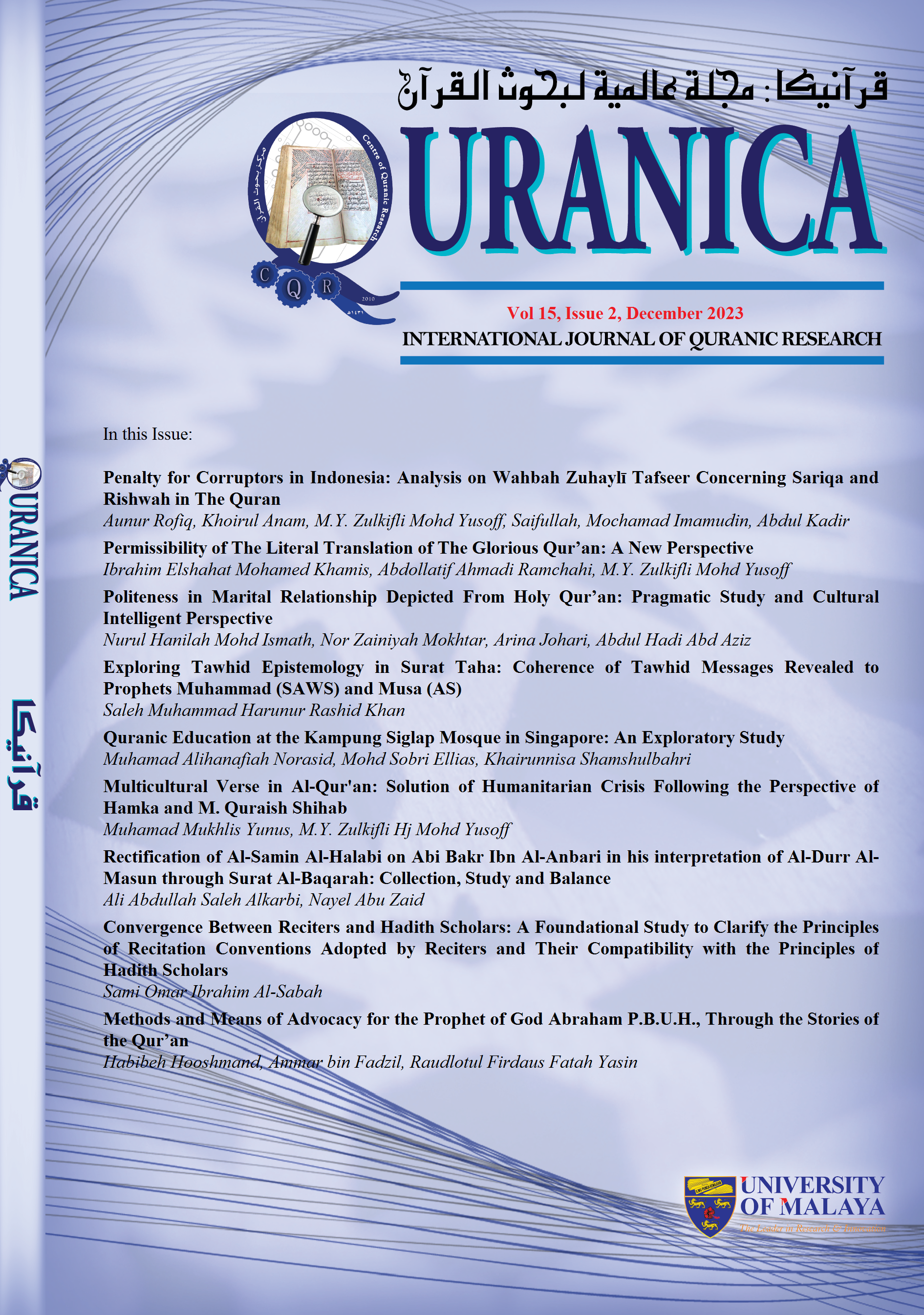Methods and Means of Advocacy for the Prophet of God Abraham P.B.U.H., Through the Stories of the Qur’an
Main Article Content
Abstract
Since the call of the prophets was carried out with divine guidance, its effectiveness is guaranteed, and it contains precise methodological rules and scientific benefits in calling to God, to be a beacon for callers, it is important to know the methods and means of calling the prophets in guiding the individual and society and delivering the divine message. This will help to ensure the success of the invitation and the promotion of the message of Allah. And our father Prophet Ibrahim, peace be upon him, is regarded as the prophet of monotheism and the father of prophets. He is also one of the prophets of the first of determination and plays a significant role in human education and the dissemination of the divine truth. This article describes his character as well as the advocacy strategies and tactics he employed to get his point across. This article used the descriptive and analytical method to study the Qur'anic verses related to the calling of prophet Ibrahim, peace be upon him, and to deduce the means and methods of calling him from the Holy Qur'an. It also described the method used by the Prophet Ibrahim in the calling, extracted relevant evidence from the Qur'an, divided it, and then studied and analysed it. The study concluded that wisdom, persuasive argument, and effective exhortation are the three most crucial strategies for promoting this heavenly prophet. Furthermore, the study emphasised the material (preaching by speech, preaching by journey, readable materials, construction of Kaabah), as well as the miraculous, aspects of prophet Ibrahim's da'wah (example, planning, and moral guidance).
Downloads
Article Details
Disclaimer
QURANICA makes every effort to ensure the accuracy of all its contents. However, opinions, discussions, views and recommendations are expressed in this journal do not necessarily reflect the official policy of QURANICA or views of its editors or publishers. Therefore, QURANICA and its publishers will not be liable for any controversy may be arisen. The journal reserves the right, at its sole discretion, to change its terms and conditions of publications.
Copyright
It is a condition of publication that manuscript submitted to the journal have not been published, accepted for publication, nor simultaneously submitted for publication elsewhere. By submitting a manuscript, the author(s) agrees that copyright for the article is transferred to the publisher, if and when the manuscript is accepted for publication.
